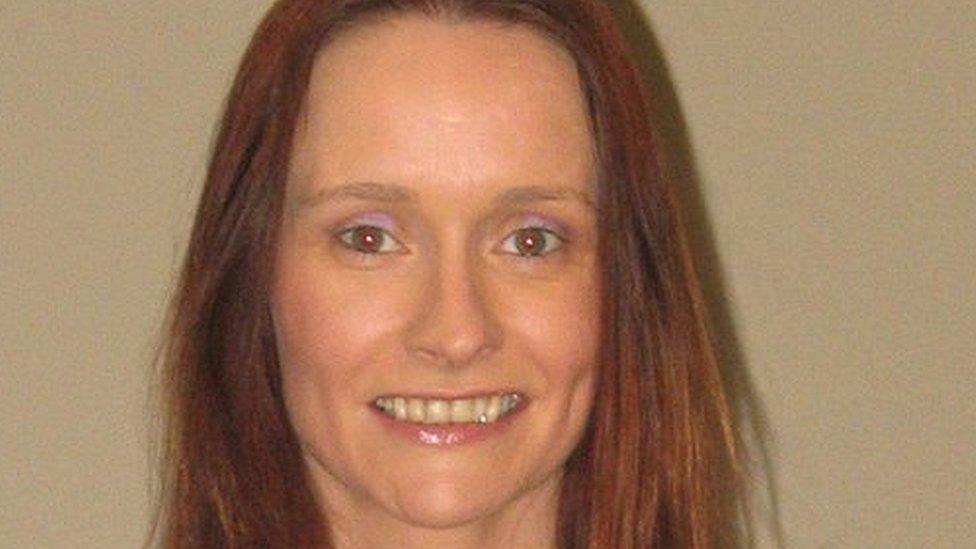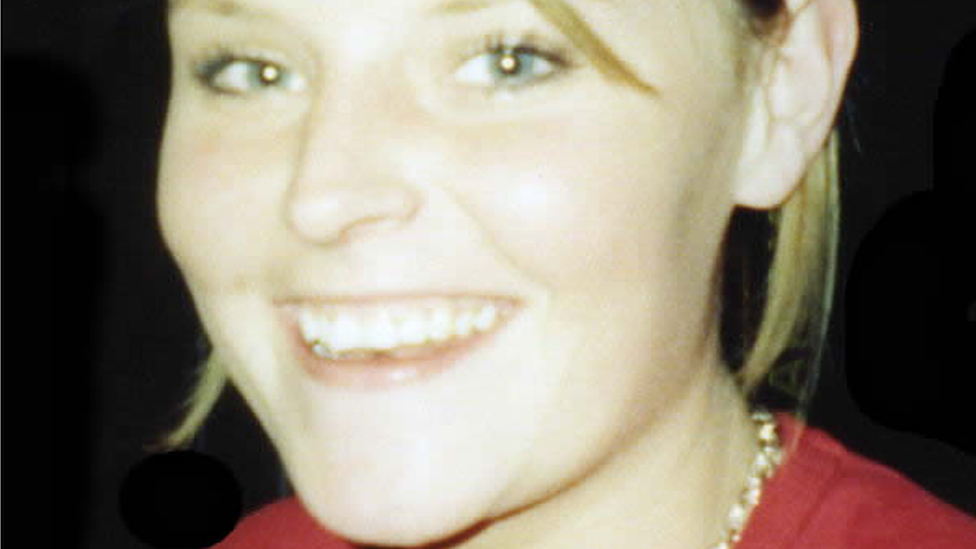Charlotte's law: Public consultation on potential changes in murder cases
- Published

Charlotte Murray, from Omagh, County Tyrone, was 34 when she was reported missing
A public consultation is to begin on possible changes to the law in murder cases in Northern Ireland where killers conceal the location of victims' bodies.
Justice Minister Naomi Long announced the consultation in response to a campaign for a so-called Charlotte's law.
Charlotte Murray went missing in 2012. Her body has never been found.
However, her former partner Johnny Miller was convicted of her murder.
Her family believe the failure to identify the location of the body should be taken into account at parole hearings.
After his sentencing, they said that Charlotte's killer should not be released from prison until he reveals the location of her body.
Her sister Sinead Corrigan hopes the proposals will encourage co-operation to help find Charlotte's body.
"It is another form of control, a disgusting act that he [Miller] continues to withhold information, but we hope that the change in the law will make him come forward," she said.
"We again appeal to him to tell us where Charlotte is, to tell us or tell someone and let us lay her to rest."
The justice minister has outlined a series of measures that could be considered to try to ensure that information about the whereabouts of bodies is given to families.
A 10-week consultation on the subject is due to begin next week, starting on 29 November.
A Department of Justice review has identified a number of different options.
Mrs Long said a report had been produced "highlighting the potential for encouraging disclosure at the investigation and prosecution stages; at conviction and in the pre-sentence and sentencing stages; early post-conviction; during the tariff period; and, finally, during the parole process".

Naomi Long has outlined a series of measures that could be considered
She added that the consultation will also explore the possibility of an early post-sentence review of tariff, for those cases where a prisoner may wish to reconsider his or her position early in the sentence.
"The consultation will also seek views on the application of any such new arrangements to existing prisoners, so that this measure would be meaningful to Charlotte's family," Mrs Long said.
In England and Wales, the so-called Helen's Law places a statutory obligation on the parole board to take into account an offender's non-disclosure of certain information when making a decision about their release from prison.
Mrs Long said she proposed "to consult on the introduction of provisions similar to Helen's Law".
The legislation is dubbed Helen's Law after Helen McCourt, who disappeared in Merseyside in 1988.
Her killer Ian Simms was freed from jail without disclosing the location of her remains.
Charlotte Murray's family have been backed in their campaign to change the law by relatives of Lisa Dorrian who disappeared in 2005, but her body has never been found.
Related topics
- Published10 February 2020

- Published28 October 2019

- Published27 February 2020
